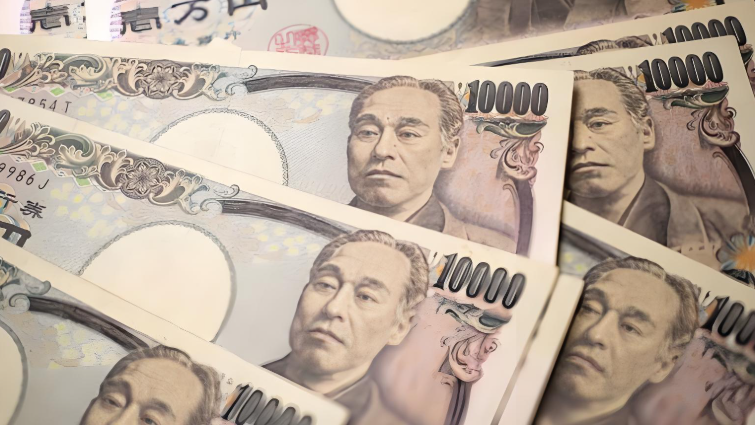As the Bank of Japan (BoJ) raises expectations for interest rate hikes, the yen's performance in the foreign exchange market has become particularly noteworthy. The yen has exhibited remarkable strength against the US dollar, even surpassing the 150 mark at one point, reaching a level that has not been seen since December of the previous year. This sharp increase has drawn significant attention from traders and analysts alike, signaling a potential shift in monetary policy from the BoJ.
On Thursday, February 19, foreign exchange market data highlighted the yen’s vigorous performance. The yen appreciated sharply against the dollar, rising by as much as 1% during intraday trading to a level of 149.95, before settling at 150.03 after some fluctuations. This movement in currency values parallels significant changes in the Japanese government bond market, where the yield on the benchmark 10-year bond surged to its highest level since 2009. These market fluctuations are fundamentally driven by traders' strong expectations of an adjustment in the BoJ's monetary policy.
Market sentiment clearly reflects these expectations, as evidenced by the overnight index swap pricing. Currently, traders are anticipating an 85% probability of an interest rate hike at the BoJ's July meeting, a significant uptick from just 70% at the beginning of the month. Market consensus holds that even if no action is taken in July, a rate increase is likely to occur by September at the latest. This fervent expectation for a rate hike is one of the key driving forces behind the yen's appreciation.

Several factors converge to support the yen’s rise. Recent commentary from officials within the BoJ has sent crucial signals to the market. For instance, BoJ board member Hajime Takata publicly stated the importance of considering gradual interest rate hikes, indicating alignment between government bond yield movements and market perceptions of economic health. Such comments from key figures certainly communicate a readiness within the BoJ to entertain raising rates, bolstering market expectations. Furthermore, BoJ Governor Kazuo Ueda's discussions with Shigeru Ishiba on economic and financial market issues have also been scrutinized. Although both parties claimed they did not address the issue of rising yields, analysts suggest that if the central bank’s leadership did not express opposition to this trend, it could be interpreted as a green light for another interest rate hike, a potential signal that has influenced trading and pricing in both the yen and the government bond market.
From a fundamental economic standpoint, the recent robust performance of the Japanese economy provides substantial backing for further rate increases. The latest data shows that Japan's GDP exceeded expectations, demonstrating a favorable development phase in the economy. Notably, nominal wage growth has reached its highest level in nearly three decades, a crucial indicator of economic vitality. Rising wages suggest enhanced consumer purchasing power and reflect well-performing corporate conditions that are willing to offer higher salaries, thereby further driving economic growth. Such commendable economic performance reassures the market of the BoJ's capacity to implement interest rate hikes.
On the other hand, rising geopolitical risks also provide a layer of support for the yen's demand. Shoki Omori, chief global strategist at Mizuho Securities in Tokyo, indicated that the stronger yen is partially due to the inherent constraints exerted on the dollar amid an increasingly complex global economic landscape. Moreover, the growing geopolitical tensions have driven investors to seek safe-haven assets, propelling the yen—known for its traditional role as a safe-haven currency—into favor, thus fostering demand for the yen and contributing to its appreciation.
Market participants are particularly focused on the upcoming consumer price index (CPI) data from Japan, set to be released Friday, which is expected to significantly influence the yen’s trajectory. If CPI data exceeds projections, it would undoubtedly further bolster the yen’s strength. Economist forecasts from Bloomberg suggest that the median year-on-year CPI growth in Japan could be around 4%. Achieving this projection would represent the highest value since January 2023. Charu Chanana, chief investment strategist at Saxo Markets in Singapore, commented, “If tomorrow’s inflation data surpasses expectations, it may further stimulate the market’s speculation regarding a rate hike from the BoJ. A key support level is at 148.65, and if CPI exceeds expectations, the yen-to-dollar exchange rate could potentially reach this level.” This illustrates the market's intense focus on the CPI data, as its outcomes will directly impact investor confidence and trading strategies regarding the yen.
In summary, the intersection of heightened expectations for a BoJ interest rate hike, strong economic underpinnings, increased geopolitical risk, and the impending CPI data collectively shape the current landscape of yen appreciation. Moving forward, the yen's performance is likely to be influenced dynamically by these various factors, prompting investors and market participants to closely monitor developments within the Bank of Japan's monetary policy, ongoing economic data shifts, and geopolitical conditions so as to make informed investment decisions amid a complex and evolving financial market.

Leave A Comment